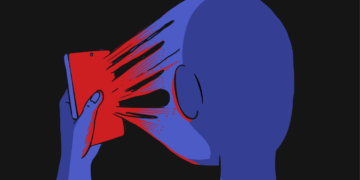As the 2023-24 academic school year nears a close, a revealing survey published by Intelligent.com has shed light on how prepared college students are for the workforce—and how their expectations regarding salary and perceptions on how much effort it takes to succeed may be out of touch.
The survey, which polled 576 college students aged 18-25, unveils perceived academic challenges and apprehensions shared by many students about transitioning into the professional workforce.
In fact, 65% of college students in the survey are anxious about entering the workforce, and 39% said they aren’t planning on joining the workforce after graduation. Notably, science majors report the highest levels of anxiety in the survey.
The data suggests this anxiety could be due to a lack of proper preparation. While 90% admit to finding their classes “too challenging,” a majority (70%) confess to dedicating less than ten hours per week to studying. Overall, 70% of students said they “put ‘a lot’ of effort into their schoolwork.” This discrepancy in the data raises questions about students’ preparedness for the increasingly competitive and demanding job market.
“The expectation is that a college course encompasses two hours of work outside the classroom for each credit hour, which would mean six hours of homework or study each week for a typical three-credit class,” Dr. Diane Gayeski, a professor of strategic communication at Ithaca College, says. “Normally, students take 15 credits a semester, so that would mean 15 hours of classroom time plus 30 hours of outside work. I think most students don’t expect to spend that much time studying or working on assignments, which leads them to believe that courses are ‘too challenging.’”
Despite this lack of preparation, the survey also reveals that one in four students who plan to enter the workforce expect a starting salary of $70,000 or more.
Mathematics stands out as the subject most students reported struggling with, followed by computer science and social sciences. Notably, men in the survey were more likely than to women to say they’ve had at least one class that they found “too challenging and should have been made easier” — 77% compared to 65%, respectively.
The data also highlights a concerning trend related to academic dishonesty — with 49% of students admitting to cheating to improve their grades. Moreover, one-third have requested grade changes from their professors.
Experts, like Gayeski, recommend internships, professional networking, and involvement in student associations as key strategies to alleviate some of these work anxieties and better prepare students for post-graduation life. Internship experiences can also provide valuable insights into the realities of working and professional life, helping students to adjust their expectations and develop the skills necessary for success in the workforce.
As colleges and universities strive to equip students for the future, this survey serves as a reminder of the importance of aligning academic rigor with practical preparation for the workforce. Addressing these challenges will be essential for ensuring that today’s students are ready to meet the demands of the current and future job market.


 Dr. Gleb Tsipursky – The Office Whisperer
Dr. Gleb Tsipursky – The Office Whisperer Nirit Cohen – WorkFutures
Nirit Cohen – WorkFutures Angela Howard – Culture Expert
Angela Howard – Culture Expert Drew Jones – Design & Innovation
Drew Jones – Design & Innovation Jonathan Price – CRE & Flex Expert
Jonathan Price – CRE & Flex Expert











